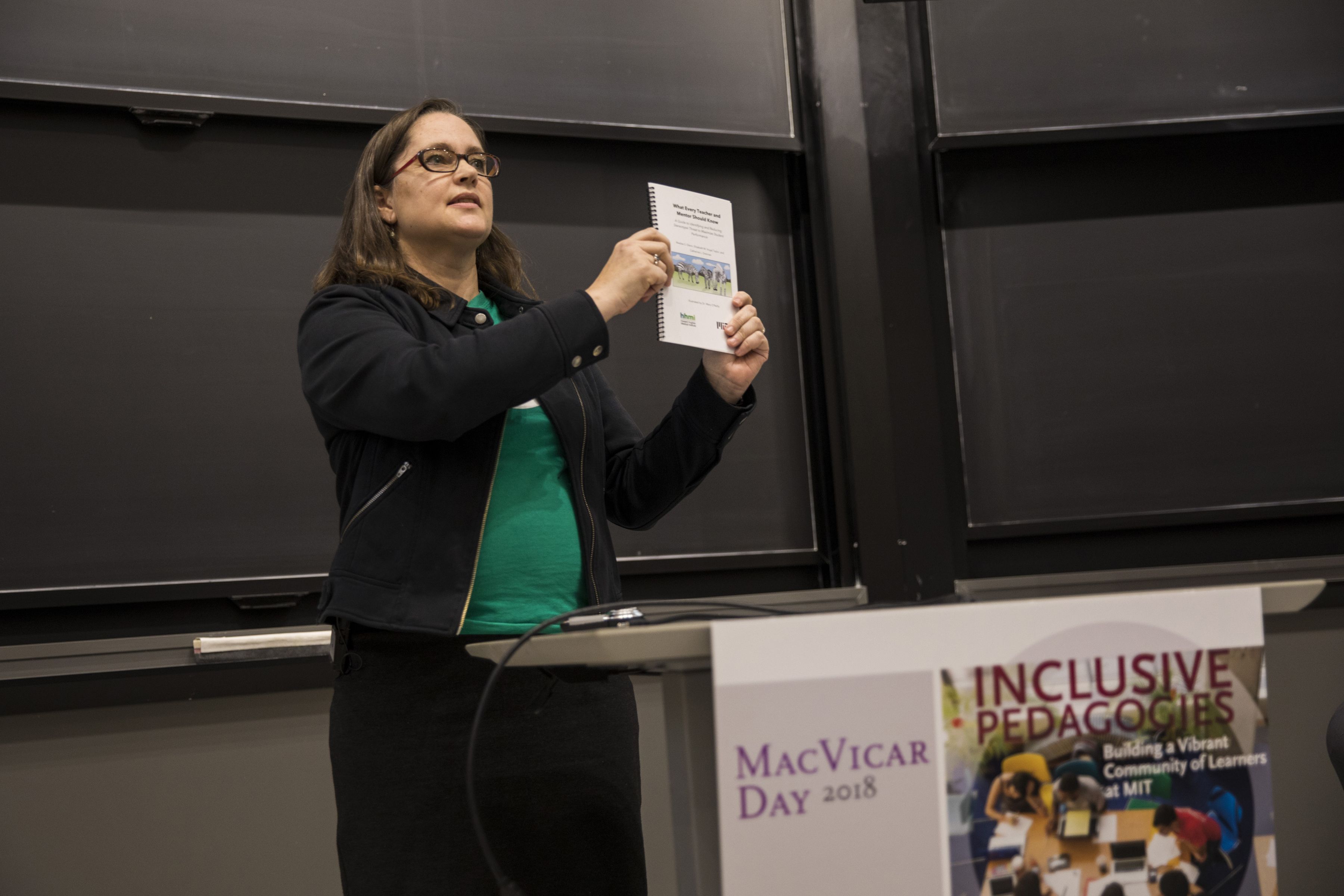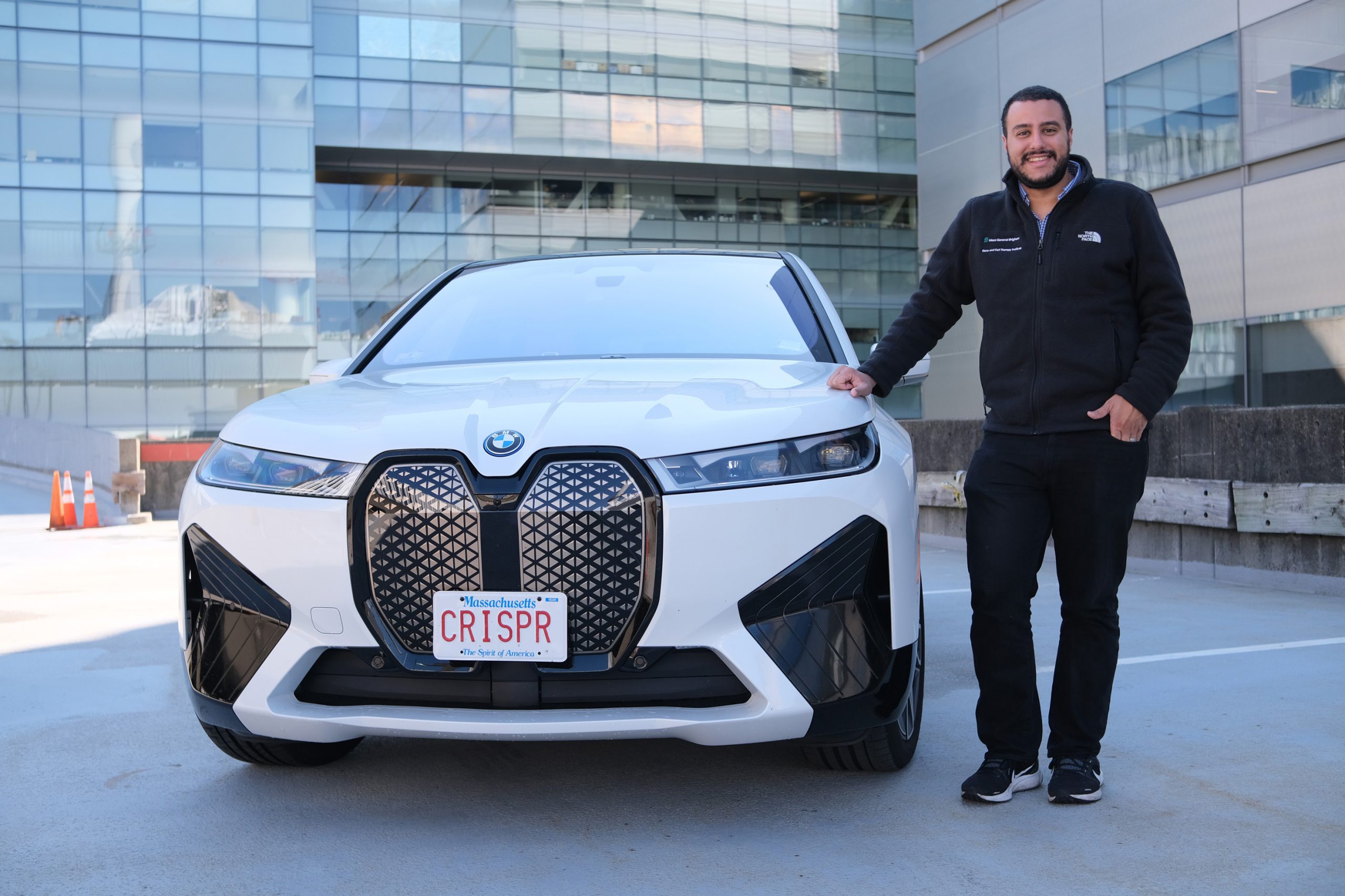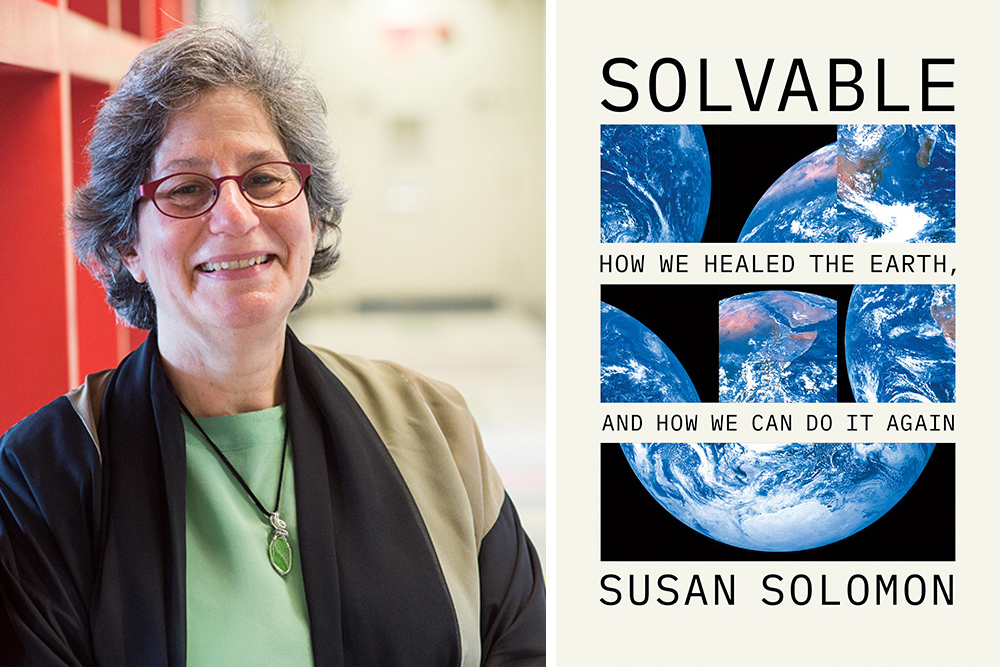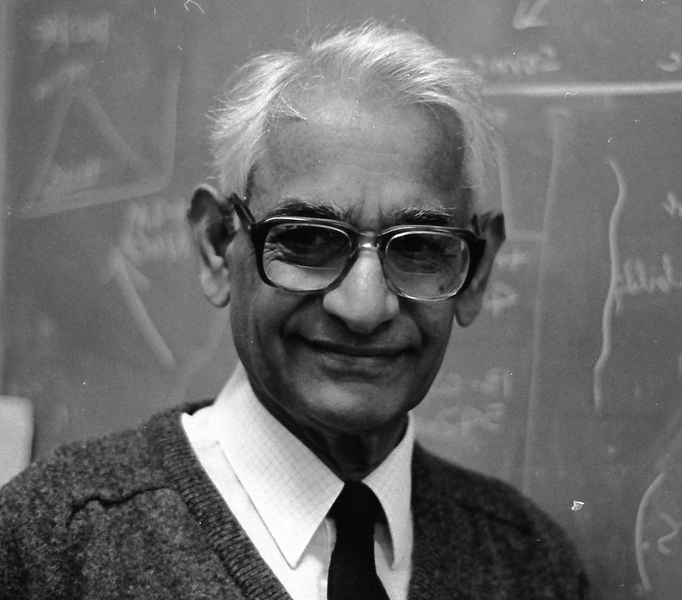Innovation fosters inclusive teaching at MIT
Panelists at MacVicar Day symposium highlight wide-ranging approaches for including, engaging, and supporting all students.
“What are we doing to enable every student at MIT to make the most of the opportunities that are here for them?” Vice Chancellor Ian A. Waitz posed this question at the start of the March 9 MacVicar Day symposium, which was titled “Inclusive Pedagogies: Building a Vibrant Community of Learners at MIT.”
The MacVicar Faculty Fellows Program, which recognizes exceptional undergraduate teaching, was established in honor of Margaret MacVicar. MacVicar was, among many things, the first dean for undergraduate education, the founder of the Undergraduate Research Opportunities Program (UROP), and a crusader for diversity and inclusiveness at MIT.
This year’s fellows are David Autor, the Ford Professor of Economics and associate head of the department; Christopher Capozzola, an associate professor of history; Shankar Raman, a professor of literature; and Merritt Roe Smith, the Leverett and William Cutten Professor of the History of Technology in the Department of History and the Program in Science, Technology, and Society (STS).
After introducing the 2018 fellows, Waitz noted several ways in which MIT has responded to calls for more inclusivity, including implicit bias training, increases to financial aid, and the creation of the special subjects MIT and Slavery and Designing the First Year at MIT. But, citing recent student survey responses, he acknowledged that there was still much to do. He hoped that the symposium would give the audience the opportunity to learn from instructors who have made considerable progress in these efforts.
The term “inclusive pedagogies” refers to classroom practices and teaching strategies that include, engage, and support all students. As the afternoon’s presenters demonstrated, approaches to inclusive teaching can vary greatly, and the path to change is often unexpected and surprising.
The (stereotype) threat is real
The first speaker was Catherine Drennan, a professor of chemistry and biology and a professor and investigator with the Howard Hughes Medical Institute. She is also a 2015 MacVicar fellow.
Drennan recounted how several years ago she was asked to speak with underrepresented minority students majoring in chemistry, and was alarmed to find that there were only two. After meeting with one of the students, she learned that he was discouraged because he did not see anyone in the field who looked like him and did not feel that his teaching assistants believed in him.
Drennan recognized that the student was experiencing stereotype threat, the perceived danger of confirming a negative generalization about a racial, ethnic, gender, or cultural group. Worrying about being stereotyped can lead to feelings of being judged unfairly and can hurt students’ performance, perpetuating the problem.
“I really like doing research in education,” Drennan reflected. “I always learn something I’m not expecting when I ask questions.”
Knowing that something had to change, she created a series of videos, which highlighted the diverse backgrounds of those in the field of chemistry, and a booklet, detailing stereotype threat and ways to counteract it. After implementing these materials in department-wide teaching assistant (TA) training, she began to host weekly “clicker competitions” in her 5.111 (Principles of Chemical Science) classes. Recitation groups, led by their TAs, faced off against each other to see who could answer the most questions correctly.
The competitions, which have been replicated at the University of California at Irvine, with similar results, allowed the TAs and students to bond. The TAs became more comfortable teaching and supporting their students, who in turn experienced a greater sense of belonging.
Active learning as inclusive learning
Katrina LaCurts, a lecturer in the electrical engineering and computer science department, presented the results of her attempt to make class participation more equitable and effective in 6.033 (Computer System Engineering).
6.033 is a communication-intensive within the major (CI-M) subject, and as such focuses heavily on writing and oral presentation. Each recitation is based on a different technical paper, which students are expected to read and be ready to discuss in class. In the past, discussions would often be dominated by just a few students, or students would arrive to class unprepared and disengaged.
Hoping that a more intimate environment would lead to more participation, LaCurts encouraged her recitation instructors to incorporate small group techniques into their classes. But she quickly discovered that there was a big difference between suggesting active learning and understanding what that entailed. She found, like Drennan had in 5.111, that change would come only when instructors were sufficiently trained.
After explaining the benefits of an active learning approach, LaCurts conducted training and worked with her instructors to apply it. When compared to prior offerings of the subject, from what LaCurts and her staff jokingly call “the dark times,” students are more engaged and have a greater sense of camaraderie with their classmates. Furthermore, instructors have found that students exhibit less anxiety and a more thorough understanding of the material. Lessons are more effective and enjoyable for all involved.
Finding a home in education
Education subjects “recognize [students’] diverse set of interests and finds [a] home for them,” said Eric Klopfer, a professor in and the director of the Scheller Teacher Education Program (STEP).
There is an overrepresentation of women and underrepresented minorities in the introductory education subjects. According to Klopfer, many students were motivated to take the class because of their personal experience as part of a group that “wasn’t expected to succeed in math and science.” Their success in STEM has compelled them to give back.
Students learn about inclusive pedagogies by implementing them at the K-12 level, designing games, teaching lessons, and making presentations. This practice of working in schools gives them firsthand experience of being both teacher and student. They observe not only the diverse backgrounds of the students themselves, but also the diversity of the ways in which students learn.
With this diversity in mind, Meredith Thompson, a research scientist at the Teaching Systems Lab (TSL) and STEP, presented Swipe Right for CS. The game, which is being developed as part of a UROP, allows teachers to practice connecting students’ strengths and interests to computer science. Some rationales don’t fit, Thompson explained, and feeling and understanding that students’ motivations for learning vary is of enormous import to aspiring teachers.
Inquiry-based learning
Christine Ortiz, the former dean for graduate education and the current Morris Cohen Professor of Materials Science and Engineering, was the afternoon’s final speaker.
In a new special subject, 3.S03 (Materials, Societal Impact and Social Innovation), Ortiz and her students explored what could happen if inclusion was incorporated into every step of the learning process. Ortiz cited the lack of inclusionary perspective in pedagogy as one of the causes for disparity in STEM fields.
In response to this inequality, the class examined two bodies of literature — course-based undergraduate research and scholarly work in equity. When considered together, these areas of study could inform one another and lead to new, innovative approaches in inquiry-based learning.
After students were equipped with a foundation of inclusive principles to internalize and use in their work, they completed a research project. Each step of the process was intentional, with careful consideration given to how to include ideas of equity. Ortiz provided continuous feedback to her students, making revision an iterative and edifying process. One of the completed projects looked at sustainability as a form of social justice, with students designing a process to recycle 3-D-printed materials. This class, Ortiz concluded, “was really a joy to teach.”
In closing, Vice Chancellor Waitz expressed his appreciation for all of the presenters and their thoughtful efforts. “Thank you for trying new things. It’s wonderful to see the impacts of this work.”





